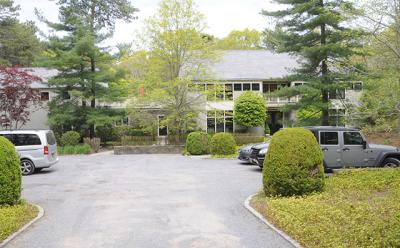The Dunes Says Town Scrutiny Is Discrimination

Safe Harbor Retreat, a California company that operates the Dunes, an in-house treatment center in East Hampton’s Northwest Woods for persons recovering from drug or alcohol addiction, has asked the United States Supreme Court to review a U.S. Court of Appeals for the Second Circuit decision rejecting its lawsuit claiming the Town of East Hampton has violated the federal Fair Housing Act.
Joseph Campolo of Campolo, Middleton & McCormick, a Long Island firm with an office in Bridgehampton, said on Tuesday that the town’s actions against the Dunes are discriminatory because as recovering addicts its residents are considered disabled, a protected class. The Second Circuit ruling is out of step, he said, with decisions by other circuit courts.
The treatment center is on Bull Run in a neighborhood zoned for residential use. The town contends it needs a special permit to operate there, and an application for a permit is now working its way through the site review process in the East Hampton Town Planning Board.
According to Mr. Campolo, site plan review should not be necessary. “We haven’t even gotten to the merits. We are very confident, once we get to that point, we will prevail,” he said.
The Dunes had previously asked the East Hampton Town Zoning Board of Appeals to overturn a 2010 decision by Tom Preiato, then chief building inspector, that the treatment center needed a permit to operate in a residential area. Its appeal was turned down in June of 2013 by a 4-to-1 vote.
Safe Harbor then sued the town in the U.S. Court for the Eastern District, which dismissed the case in March 2015 saying it was “unripe” in that the company had not pursued all administrative remedies.
The Court of Appeals for the Second Circuit upheld that ruling, stating Safe Harbor “had failed to apply for the special permit as a semi-public facility notwithstanding the building inspector’s and zoning board’s invitations that it do so.”
Mr. Campolo’s appeal to the Supreme Court states that having different sets of standards in circuit courts sets up situations that could dictate where a handicapped person resides. It also cites as well precedent from other circuit courts, in which group homes were granted single family status. “The Fair Housing Act is a federal law requiring uniform interpretation,” according to the appeal. It also cites the need for such a facility.
On the phone Tuesday, Mr. Campolo bristled at a suggestion that because of the high cost of treatment at the Dunes, reported to be about $45,000 a month, the facility serves only the rich. He said the Dunes has provided services worth more than $2 million, in scholarships to East Hampton residents.
Mr. Campolo complained that the town was acting in response to political pressure from neighbors of the facility, who had been “fear-mongering.” The Dunes, which was opened in 2009, had operated for ten months without a hitch, he said, until The New York Post published an article that year revealing its existence.
Mr. Campolo said he believed the Supreme Court would decide whether to hear Safe Harbor’s appeal by the start of its next term this fall.
